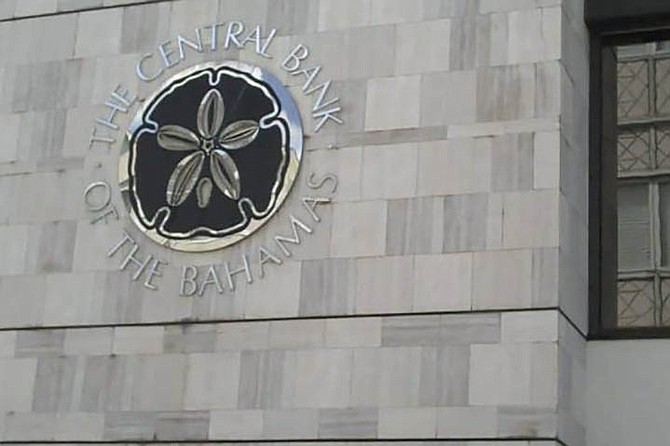By YOURI KEMP
Tribune Business Reporter
ykemp@tribunemedia.net
The Central Bank says foreign reserves contracted in the month of July by $45m and will continue to fall on the back of weak tourism demand as they also forecast the economy will continue on this path for the reminder of the year.
The bank, in its monthly financial and economic developments for the month of July, said: “Amid the ongoing pandemic, along with international travel restrictions, external reserves contracted by $45.5m to $1.983bn during the month of July, a turnaround from an $18.3m expansion a year earlier.
“Underpinning this outturn, the Central Bank’s transactions with commercial banks reversed to a net sale of $65.1m, from a net purchase of $32.5m in the previous year. Further, commercial banks recorded a net sale of $58.8m to their customers, following a net intake of $30.6m in 2019. Providing some offset, the Central Bank recorded a net purchase of $18.5m from the public sector, vis-a-vis a net sale of $41.7m in the preceding year.”
Usable reserves increased to $959.71m for July, 2020 from $797.26m or 20.36 percent. In addition, excess reserves—the narrow measure of liquidity—rose by $31.2m to $1,270.5m, but was lower than the $38.5m expansion in 2019.
“Monetary sector developments will continue to feature healthy banking sector liquidity, as a result of commercial banks’ conservative lending stance. However, a sizable reduction in external reserves is anticipated owing to a falloff in foreign currency receipts related to tourism sector activity and an increase in imports to aid reconstruction efforts. Nonetheless, external balances are poised to remain adequate to sustain the Bahamian dollar currency peg.”
The bank mentions that tourism “remained contracted during the month of June, as travel restrictions related to the COVID-19 pandemic largely eliminated both air and sea arrivals.
“As the border was partially re-opened to international travellers by private aviation and boat on June 15, preliminary data provided by the ministry of tourism revealed that total foreign arrivals for the month of June reached 3,935, relative to the 18.8 percent increase to 641,410 a year earlier. Specifically, sea arrivals totalled 2,230, in contrast to the 22.9 percent expansion to 473,018 in June 2019. Similarly, air arrivals were just 1,705, in comparison to an 8.7 percent growth to 168,392 in the previous year.”
Despite this, the bank said that they will “retain its targeted accommodative stance for private credit, and continue to pursue policies that maintain a favourable outcome for external reserves.”
The bank further states the domestic economy will continue to contract as “Economic indicators suggest that the domestic economy will contract in 2020, dominated by the effects of the COVID-19 pandemic, combined with the fallout from Hurricane Dorian. As global economic activity and travel remained subdued owing to the spread of the virus, tourism output is anticipated to decline, with any prospects expected to be contingent on progress in the international health front and the complete removal of imposed travel restrictions. Nevertheless, several new and ongoing foreign investment-led projects, along with post-hurricane rebuilding works, are anticipated to provide impetus to the construction sector. In this environment, the unemployment rate is projected to remain sharply elevated over the near-term, with any job gains concentrated mainly in the construction sector, and only the limited re-engagement of tourism sector employees. Meanwhile, inflationary pressures are expected to remain contained, notwithstanding any shocks in international oil prices.”





Comments
Use the comment form below to begin a discussion about this content.
Sign in to comment
OpenID